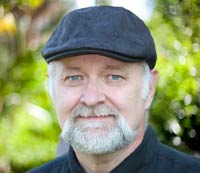A guest post by Monique Bucheger.
The journey of becoming a writer and/or a published author is different for everyone who does it. My journey began in high school when my creative writing teacher, Mrs. Johnson, encouraged me to transfer the stories in my head to paper. This endeavor started out as multiple class assignments and quickly turned into a love of storytelling. I wrote a lot of short stories in high school and then branched out into larger works.
Shortly before I turned 18, my husband proposed and I agreed to marry him. Everyone wished us well, except my creative writing teacher. She shook her head and said, “You are too smart to get married so young.” When I asked her what that meant, she sighed and said, “If you get married now, you’ll have a bunch of kids, but you won’t write the books that you need to write.”I assured her that I could do both.
Twenty-two years later, I had twelve kids (and am very grateful to have them) and no books, and was (and am) still married to the same man. Then one day, Mrs. Johnson’s son went up in the Space Shuttle Endeavour, and I started thinking about her more. In return, she began haunting me (she had died a couple years before). After I kept hearing her ask, “So, when are you going to write those books, Monique?” I decided it was time to keep my promise to her.
I remembered a fun, spirited twelve-year-old half-orphan I had created as a tween. Before long, I started writing her story. Then I wrote more of her story. And I kept right on writing. My “story” took on a life of its own until I had a book the size of four novels—which I broke into three.
Then the real work began. I exchanged chapter critiques with other writers and realized that simply writing 300 pages of a story didn’t make it readable and publishable. I met amazing people who took the time to explain what I was doing wrong—and right—with my storytelling and I learned the value of both editing your book until it shines and hiring a good editor to make it even better.
I found people like David Farland, an internationally best-selling author, who is also a wonderful teacher. His love of story and his knowledge on how to craft a great story is inspiring. Dave is open and approachable and willing to help those who ask. He has several online classes as well as weeklong workshops.
Life experience, interests, passions, and hobbies also have great bearing on how and what an author chooses to write. The years I didn’t write, I devoted to my family and became a foster mother to over 100 kids.
Now I write realistic fiction—think Judy Blume or Beverly Cleary—two of my literary heroes. The four published books in my “Ginnie West Adventure ” middle-grade series deal with tough subjects like child abuse, abandonment, being orphaned, and alcoholism in uplifting and empowering ways. It also deals with other subjects important to kids: friends, family, fitting in, figuring out how the world works, horses, finding acceptance, and other assorted adventures. I like to think the series does so with a bit of humor and grace.
I want abused kids—and the people who care about them—to make sense of a world they’d rather not live in and to realize certain things are not their fault. Most importantly, I want kids to know they have power to change things. Choosing how you react to an event—good or bad—is powerful. And whether you let it defeat you or strengthen you can be life-changing.
The truth is, real life can be messy and it can be hard. It can also be fun, invigorating, exciting, and full of wonder. I try to embrace each of these elements—and more—in each book I write. Recently—I have met several readers who have told me that my series has influenced them in a positive way.
Formerly abused kids (who are now adults) have found comfort in my series. Mothers have shared with me that they have read my series with their kids and had meaningful conversations about how child abuse happens and what it means to be a good friend—both subjects I deal with in my series in an age appropriate way.
Last month three different tween girls told me they love the relationship between my main characters, Ginnie and Tillie—fun-loving BFFs who are trying to figure out this thing called life—together, in spite of being tossed some pretty crazy plot twists. The girls really care about Ginnie and Tillie and want to know what will happen to them.
Not long ago, a friend devoured my first three books in two days and informed me, “You know the Wests are family now, don’t you? I love them.” It is during these moments I find validation and strength in my decision to become a published author … and these moments are why I keep writing.
.
Guest Writer Bio: When Monique Bucheger isn’t writing, you can find her playing taxi driver to one or more of her 12 children, plotting her next novel, scrapbooking, or being the “Mamarazzi” at any number of child-oriented events. Even though she realizes there will never be enough hours in any given day, Monique tries very hard to enjoy the journey that is her life. She shares it with a terrific husband, her dozen children, a son-in-law, an adorable granddaughter, two cats, and many real and imaginary friends. She is the author of several books and plans to write many more. Monique’s Musings can be found at: http://moniquebucheger.blogspot.com/

